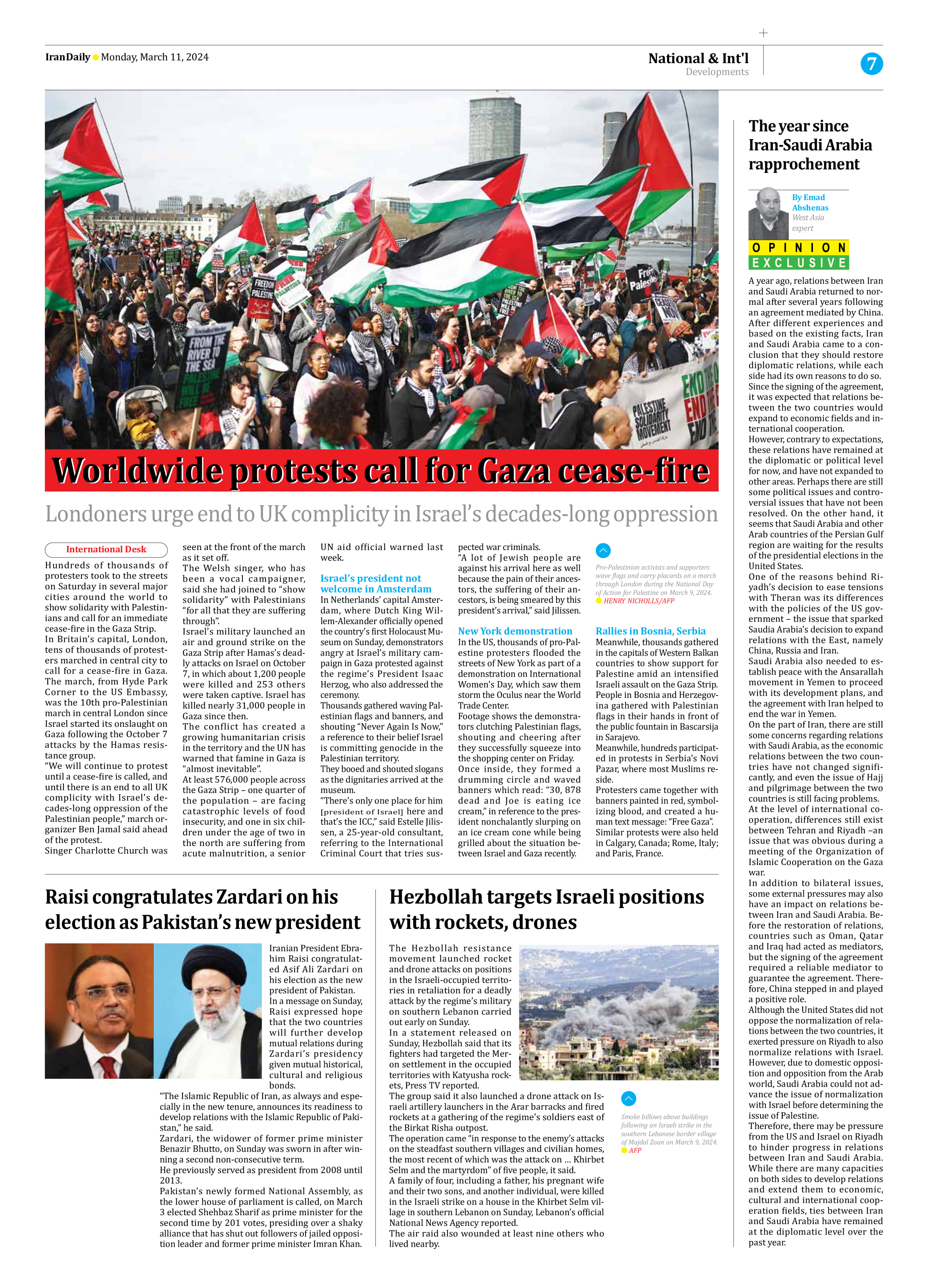
The year since Iran-Saudi Arabia rapprochement
By Emad Abshenas
West Asia expert
A year ago, relations between Iran and Saudi Arabia returned to normal after several years following an agreement mediated by China. After different experiences and based on the existing facts, Iran and Saudi Arabia came to a conclusion that they should restore diplomatic relations, while each side had its own reasons to do so.
Since the signing of the agreement, it was expected that relations between the two countries would expand to economic fields and international cooperation.
However, contrary to expectations, these relations have remained at the diplomatic or political level for now, and have not expanded to other areas. Perhaps there are still some political issues and controversial issues that have not been resolved. On the other hand, it seems that Saudi Arabia and other Arab countries of the Persian Gulf region are waiting for the results of the presidential elections in the United States.
One of the reasons behind Riyadh’s decision to ease tensions with Theran was its differences with the policies of the US government – the issue that sparked Saudia Arabia’s decision to expand relations with the East, namely China, Russia and Iran.
Saudi Arabia also needed to establish peace with the Ansarallah movement in Yemen to proceed with its development plans, and the agreement with Iran helped to end the war in Yemen.
On the part of Iran, there are still some concerns regarding relations with Saudi Arabia, as the economic relations between the two countries have not changed significantly, and even the issue of Hajj and pilgrimage between the two countries is still facing problems.
At the level of international cooperation, differences still exist between Tehran and Riyadh –an issue that was obvious during a meeting of the Organization of Islamic Cooperation on the Gaza war.
In addition to bilateral issues, some external pressures may also have an impact on relations between Iran and Saudi Arabia. Before the restoration of relations, countries such as Oman, Qatar and Iraq had acted as mediators, but the signing of the agreement required a reliable mediator to guarantee the agreement. Therefore, China stepped in and played a positive role.
Although the United States did not oppose the normalization of relations between the two countries, it exerted pressure on Riyadh to also normalize relations with Israel. However, due to domestic opposition and opposition from the Arab world, Saudi Arabia could not advance the issue of normalization with Israel before determining the issue of Palestine.
Therefore, there may be pressure from the US and Israel on Riyadh to hinder progress in relations between Iran and Saudi Arabia. While there are many capacities on both sides to develop relations and extend them to economic, cultural and international cooperation fields, ties between Iran and Saudi Arabia have remained at the diplomatic level over the
past year.







